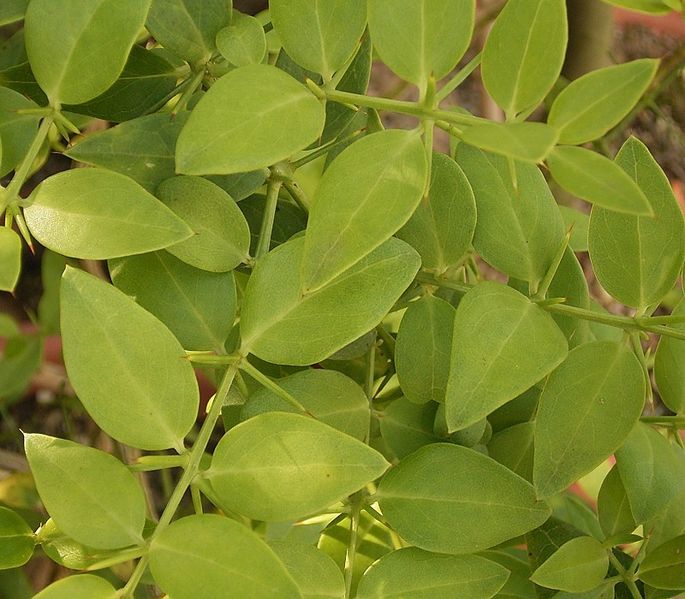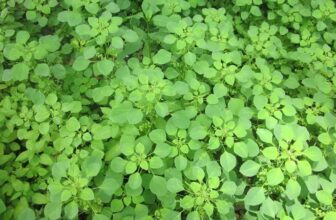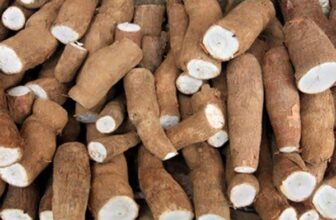
Dry cough is one of the most common ailments experienced during the summer season, often caused by internal heat build-up or exposure to allergens. While many turn to antibiotics to suppress the symptoms, this often leads to temporary relief, leaving the root cause untreated. In traditional Siddha and Ayurvedic medicine, Imbural—a plant often found growing as a wild bush or weed near homes—has long been used as a natural remedy for such conditions.
In this blog, we explore the wisdom shared by Gnana Sundarapandiyan, a natural lifestyle consultant, who explains how Imbural can be a safe and effective way to manage dry cough and support the body’s natural healing.
What is Imbural?
Imbural, scientifically known as Oldenlandia Umbellata, is a medicinal herb recognized for its cooling and detoxifying properties. It is commonly found in southern India, especially around rural areas where it grows abundantly near fields and homes. Despite its simple appearance, Imbural carries immense medicinal value, especially in treating seasonal coughs and respiratory irritation.
The Problem with Dry Cough and Modern Treatment
During the hot months, many individuals experience:
- Dry, non-productive cough
- Persistent throat irritation
- Sleep disturbances due to nighttime coughing
- Coughing triggered by talking, eating, or lying down
These symptoms often prompt people to consume antibiotics or over-the-counter suppressants, which may temporarily suppress the symptoms, but do not address the underlying cause. According to natural health principles, the body uses coughing to expel internal toxins or mucus, and stopping it abruptly can hinder this cleansing process.
How Imbural Helps
Imbural works by reducing internal heat and supporting the expulsion of mucus in a natural, non-suppressive manner. It promotes balance in the body and provides relief from:
- Persistent dry cough
- Throat dryness and inflammation
- Heat-related respiratory discomfort
This herb is particularly effective when made into a decoction (kasayam) or used in powder form mixed with food.
Methods of Consumption
1. Imbural Kasayam (Herbal Decoction)
Those who can identify the Imbural plant can:
- Collect fresh leaves and stems
- Boil in water to make a kasayam (herbal drink)
- Drink once or twice a day for relief
This method is ideal for adults and can be administered carefully to children in smaller quantities, based on traditional dosage guidelines.
2. Imbural Powder with Rice or Suranam
- Dried Imbural can be ground into a fine powder
- This powder can be mixed with hot rice and consumed as part of a meal
- Alternatively, it can be added to herbal mixtures (suranam)
This is an excellent way to incorporate the herb into a daily routine, especially for those who dislike the taste of decoctions.
3. Tablets and Lehyam from Herbal Stores
For those unable to identify or harvest the herb:
- Visit a certified Siddha or Ayurvedic store
- Purchase Imbural in tablet or lehyam (paste) form
- Consult the storekeeper or a traditional physician for dosage recommendations for adults and children
Safety and Guidance
Though Imbural is a natural herb, dosage and form of consumption must be guided by an Ayurvedic or Siddha practitioner, especially for:
- Children and elderly people
- Individuals with chronic respiratory issues
- Pregnant or breastfeeding women
Traditional medicine is powerful and must be respected like modern pharmacology.
Key Takeaways
- Imbural (Oldenlandia Umbellata) is a traditional remedy for dry cough, especially during hot seasons.
- It helps cool the body, reduce internal heat, and clear mucus naturally.
- It can be consumed as a kasayam, powder, or lehyam.
- Always seek proper guidance on dosage, especially when giving it to children.
- Imbural is a safe, accessible, and natural option to avoid overuse of antibiotics.
Conclusion
Modern lifestyle often leads us to overlook the rich plant-based knowledge of our ancestors, who treated everyday health problems using plants growing in their own backyard. Imbural is a powerful reminder of the value of such traditional wisdom. With the guidance of natural health experts like Gnana Sundarapandiyan, we can reconnect with nature, restore our health, and live more consciously.
Rather than suppressing symptoms, Imbural helps the body heal from within, offering a holistic approach to respiratory well-being. Embrace the time-tested practices of herbal healing, and take a step toward natural immunity and sustainable health.





